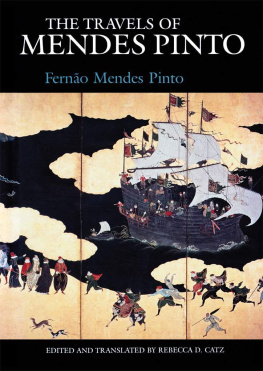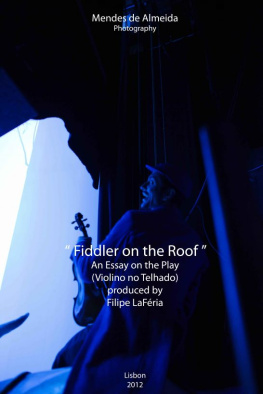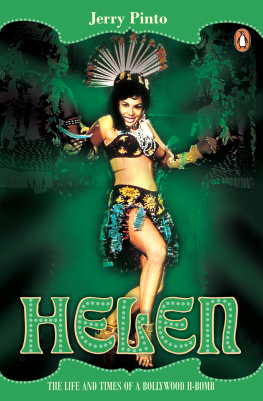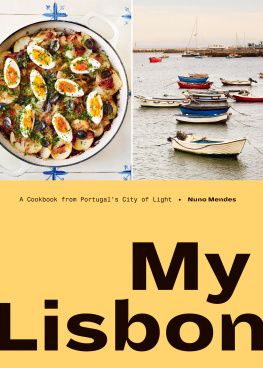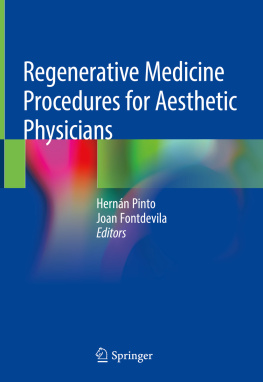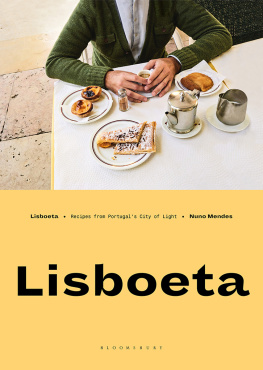Mendes Pinto Ferñao - The Travels of Mendes Pinto.
Here you can read online Mendes Pinto Ferñao - The Travels of Mendes Pinto. full text of the book (entire story) in english for free. Download pdf and epub, get meaning, cover and reviews about this ebook. year: 2014, publisher: University of Chicago Press, genre: History. Description of the work, (preface) as well as reviews are available. Best literature library LitArk.com created for fans of good reading and offers a wide selection of genres:
Romance novel
Science fiction
Adventure
Detective
Science
History
Home and family
Prose
Art
Politics
Computer
Non-fiction
Religion
Business
Children
Humor
Choose a favorite category and find really read worthwhile books. Enjoy immersion in the world of imagination, feel the emotions of the characters or learn something new for yourself, make an fascinating discovery.
- Book:The Travels of Mendes Pinto.
- Author:
- Publisher:University of Chicago Press
- Genre:
- Year:2014
- Rating:3 / 5
- Favourites:Add to favourites
- Your mark:
- 60
- 1
- 2
- 3
- 4
- 5
The Travels of Mendes Pinto.: summary, description and annotation
We offer to read an annotation, description, summary or preface (depends on what the author of the book "The Travels of Mendes Pinto." wrote himself). If you haven't found the necessary information about the book — write in the comments, we will try to find it.
The Travels of Mendes Pinto. — read online for free the complete book (whole text) full work
Below is the text of the book, divided by pages. System saving the place of the last page read, allows you to conveniently read the book "The Travels of Mendes Pinto." online for free, without having to search again every time where you left off. Put a bookmark, and you can go to the page where you finished reading at any time.
Font size:
Interval:
Bookmark:
REBECCA D. CATZ is a research associate in Renaissance and medieval studies at the University of California, Los Angeles.
The map of Asia printed on the endsheets is from Abraham Ortelius, Theatrum orbis terrarum (Antwerp, 1570). Courtesy of the Edward E. Ayer Collection, The Newberry Library, Chicago
This publication has been supported by grants from the Calouste Gulbenkian Foundation of Lisbon and the National Endowment for the Humanities, an independent federal agency.
The University of Chicago Press, Chicago 60637
The University of Chicago Press, Ltd., London
1989 by The University of Chicago
All rights reserved. Published 1989
Printed in the United States of America
98 97 96 95 94 93 92 91 90 543
LIBRARY OF CONGRESS CATALOGING-IN-PUBLICATION DATA
Pinto, Ferno Mendes, d. 1583.
[Peregrinaam. English]
The travels of Mendes Pinto / Ferno Mendes Pinto ; edited and translated by Rebecca D. Catz.
p. cm.
Translation of: Peregrinaam.
Bibliography: p.
1. AsiaDescription and travel. 2. Pinto, Ferno Mendes, d. 1583JourneysAsia. I. Catz, Rebecca. II. Title.
DS7.P5513 1989
910.4dc19 88-39778
ISBN 0-226-66951-3 CIP
 The paper used in this publication meets the minimum requirements of the American National Standard for Information SciencesPermanence of Paper for Printed Library Materials, ANSI Z39.48-1984.
The paper used in this publication meets the minimum requirements of the American National Standard for Information SciencesPermanence of Paper for Printed Library Materials, ANSI Z39.48-1984.
ISBN-13: 978-0-226-92323-9 (e-book)
THE TRAVELS OF MENDES PINTO
Ferno Mendes Pinto
Edited and Translated by
REBECCA D. CATZ

The University of Chicago Press
CHICAGO AND LONDON

Title page of the first edition (Lisbon, 1614).
Courtesy of the James Ford Bell Library, University of Minnesota
Contents
Illustrations
Following Chapter 123
Following Chapter 187
Acknowledgments
I was turned down by several colleagues whom I had asked to read the manuscript. Who can blame them? Time is short and Pintos book is long.
But there was one man, to whom I am extremely gratefulMarion A. Zeitlin of the University of California at Los Angeleswho, appropriately enough, was my first professor of Portuguese. He alone found the time to read, correct, suggest, and encourage me in what was to be a long and arduous labor of love. We did not always see eye to eye, but the exchange was always stimulating and fruitful. How can I thank him?
I am also indebted to Professor Francis M. Rogers of Harvard University, who read a good part of the manuscript, to which he gave his blessings, though not without some critical comments intended to eradicate a few errors in form and content.
At the same time I would like to express my most cordial thanks to the following institutions that supplied illustrations for this edition: the National Maritime Museum of Greenwich, the Academia das Ciencias of Lisbon, the Kunsthistorische Museum of Vienna, and the City Museum of Kobe. Especially warm thanks are due to John Parker of the University of Minnesotas John Ford Bell Library and Robert Karrow of the Newberry Library, who were extraordinarily helpful.
And last but not least, I am profoundly indebted to the National Endowment for the Humanities and the Calouste Gulbenkian Foundation of Lisbon for much appreciated financial support.

General reference map illustrating the travels of Mendes Pinto from the east coast of Africa to Japan
Introduction
Little is known about Ferno Mendes Pinto except that he was born (1510?) and died (1583) in Portugal, that he spent the best years of his life in Asia, and that he wrote a book which he never lived to see published. His total literary production is represented by his Peregrinaao [Travels], which appeared in 1614, some thirty years after the authors death, plus three extant letters, the first of which was written from Malacca on 5 December 1554 and published immediately after it was received in Portugal; the second, written from Macao on 20 November 1555, was not published until the beginning of this century. The third letter, written from Almada on 15 March 1571, was purchased by Harvard University in 1966 and published in 1983.
Pinto was still a young man in his late twenties when, in the year 1537, he sailed for India. There he amassed a considerable fortune as a merchant adventurer, only part of which he brought home. On one of his voyages to Japan he met and befriended Francis Xavier, to whom he lent money to build the first Christian church in Japan. In 1554 he joined the Society of Jesus and took part in and paid for a diplomatic and evangelical mission to Japan. Two years later he was separated from the order, at his own request, and not long afterwards, in the year 1558, he returned to Portugal, after an absence of twenty-one years.
Disappointed in his hopes of obtaining a royal sinecure, he left the court of Lisbon after four and a half years of fruitless petitioning, married, and retired to a modest estate in Almada, a town opposite Lisbon, on the other side of the Tagus River. There he devoted the remainder of his life to raising a family and writing a book that was to become a classic in Portuguese literature, a book that in the seventeenth century rivalled in popularity that of Cervantess famous classic.
But the books popularity abroad declined, due in great part to a proliferation of faulty and bigoted translations which to this day have not been corrected. From the beginning, Pintos work was misunderstood but thoroughly enjoyed as an amusing travelers tale or an imaginative adventure book, the first in European literature to tell of pirate battles on the high seas in the distant lands of the little-known Orient. This was far from the authors intention.
A close reading of Pintos Travels reveals that it is a work of corrosive satire in which the author attacks all the religious and political institutions of sixteenth-century Portugal. More than that, it represents a sweeping condemnation of the ideology of the crusade, which was the mythic lifeline of the overseas empire of the Portuguese. This was a dangerous subject in an age when a persons innermost thoughts were the particular object of episcopal censorship. Yet this is what makes the Travels a unique document in the history of Western thought. It is a rare book indeed, in a period of religious strife, that makes a plea for religious tolerance as a moral injunction from God. It is an early example, if not the first in a period that witnessed the beginnings of the age of European imperialism, of a book that questions the morality of the overseas conquests of the Portuguese, which the author views as barbaric acts of piracy, and much of which he claims to have seen in his lifetime, a lifetime that spans almost all of the sixteenth century.
At about the time that Pinto was born, the Portuguese had acquired a line of scattered maritime possessions that stretched from the coasts of Brazil to West Africa, East Africa, Persia, the Malabar coast of India, Ceylon, the Malay Archipelago, and the Moluccas. When Pinto died in 1583, Portugal had ceased to exist as an independent nation. In 1580 he witnessed the shameful absorption of his country into the empire of Philip II, who supported his claim to the Portuguese throne with well-placed money and military might. This tumultuous period of history is reflected in the book and needs to be known by anyone who would read it with understanding and appreciation.
Next pageFont size:
Interval:
Bookmark:
Similar books «The Travels of Mendes Pinto.»
Look at similar books to The Travels of Mendes Pinto.. We have selected literature similar in name and meaning in the hope of providing readers with more options to find new, interesting, not yet read works.
Discussion, reviews of the book The Travels of Mendes Pinto. and just readers' own opinions. Leave your comments, write what you think about the work, its meaning or the main characters. Specify what exactly you liked and what you didn't like, and why you think so.

